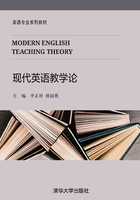
Suggestions
Collaboration between the teachers and the researchers
Time permitting, the specialists should go to the rural areas, observing English classes, discussing some problems with the local teachers, hearing the teachers’ say about their reality and condition in language teaching in order to get the first-hand materials for their academic research. Teachers are the ones who do it and, therefore, are the ones who know about it. It’s worth getting teachers to build on what they know, to build on what questions they have, because that’s what matters—what teachers know and what questions they have. And so anybody who wants to be ahelpful researcher should value what the teachers know and help them develop that.
Designing in-service and out-of-service teacher training program which is practical to the rural English teachers
Language teaching specialists should be responsible for both in-service and out-of-service training program. In-service training program should focus on improving teachers’ personal qualities, including improvement of their language knowledge, such as listening, speaking, reading and writing; language teaching skills, management of the classroom English teaching, approaching language teaching methodology, etc. The professional education, a course focusing on the effective use of language in the classroom, should form the most important part of the training program. Out-of-service teacher training program, different from that of in-service training program, ought to emphasize transferring theoretical knowledge on English language teaching to the English teachers so as to help them get a clear understanding of the theory underlying their virtual performance in class.
Holding regular seminars or workshops
Seminars or workshops should be held regularly by the language teaching professionals in the community, which is quite helpful and beneficial for teacher development both in theory and in practice. This can be done during the holidays. The teachers from the same community, gathering together, can exchange their teaching experiences, discuss the problems they meet in the process of their teaching, and seek better and effective ways to language teaching and learning.
Combination of peer observation with self observation in monitoring the classroom management
Peer observation and evaluation is frequently conducted by the professionals of the local area or the experienced teachers in the same school. However, self-observation is usually neglected by both the teachers themselves and their immediate authorities. Self-observation and self-assessment plays an important part in teachers’professional development. So besides peer observation, teachers can observe their own class by recording their lessons and replay them and watch them carefully after class so as to know how well they are doing. Thus it can provide an opportunity for teachers to reflect critically on their own teaching.
Establishing language teaching system of our own
From Grammar-Translation Method to Communicative Approach, until Task-Based Instruction suggested in New Curriculum Criteria, they were all introduced to China from foreign countries. However, all these approaches and methods were invented according to the needs of foreign learners instead of the Chinese learners. They may be effective under the teaching situation and environment in foreign countries. There must be some other problems for Chinese teachers to carry them out because of the various factors existing in China. Though they bear some advantages they are not suitable for Chinese learners and they are against the real teaching context in China. Our aims should be: to take the advantages of all those methods, modify and revise them according to Chinese context and establish the language teaching system of our own.